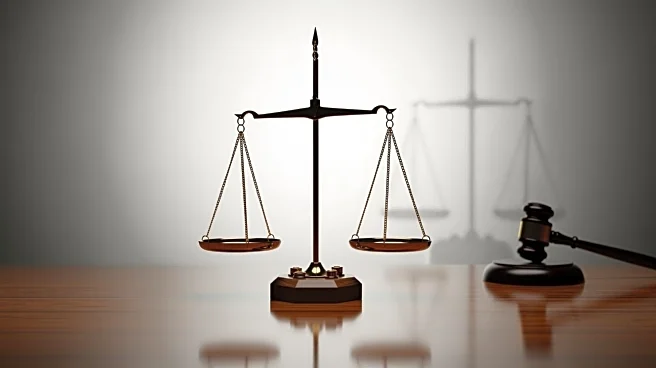What's Happening?
Ohio House Speaker Matt Huffman has proposed limiting the authority of county judges to issue restraining orders and injunctions that block state laws. This proposal comes in response to a recent decision by a Franklin County judge to issue a 14-day restraining order against
Governor Mike DeWine's short-term ban on 'intoxicating' hemp, which the judge deemed contrary to the existing definition of hemp in Ohio law. Huffman argues that such judicial actions have become too far-reaching, often stalling GOP-backed legislation on issues like abortion and gender transition treatments. He aims to address this by November, suggesting that the current system allows a single judge to halt laws affecting the entire state, despite being elected by only one county.
Why It's Important?
The proposal to limit judicial power in Ohio could significantly impact the balance of power between the legislative and judicial branches. If enacted, it may reduce the ability of judges to intervene in controversial laws, potentially allowing more GOP-backed legislation to proceed without judicial interference. This could affect various sectors, including healthcare and education, by enabling laws that have been previously blocked. Critics, including the ACLU, argue that such measures could undermine judicial independence and the checks and balances system, leading to concerns about the erosion of legal protections for minority groups and individuals affected by these laws.
What's Next?
House Speaker Huffman plans to explore several options to limit judicial authority, with the goal of implementing changes by November. This initiative may face opposition from civil rights groups and legal experts who argue for the preservation of judicial checks on legislative actions. The proposal's progress will likely be closely monitored by stakeholders across Ohio, including lawmakers, advocacy groups, and the judiciary, as it could set a precedent for similar actions in other states.
Beyond the Headlines
The debate over judicial power in Ohio highlights broader national discussions about the role of the judiciary in shaping public policy. Limiting judges' ability to block laws could lead to increased legislative power, raising ethical and legal questions about the protection of individual rights and the potential for unchecked governmental authority. This development may also influence future legislative strategies and judicial responses in other states facing similar issues.















